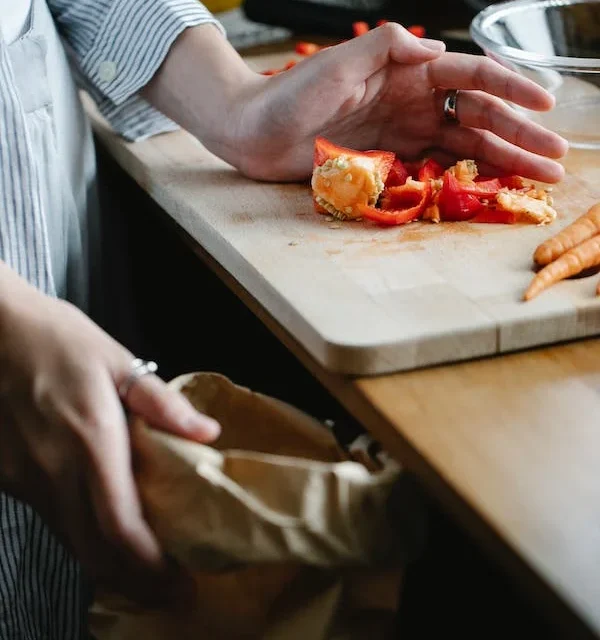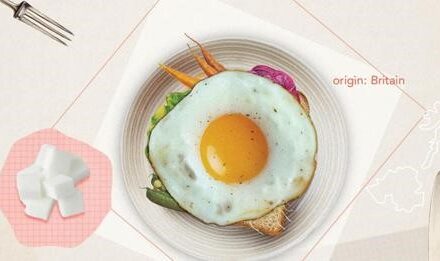We are very delighted to welcome Suzy Smith – a development chef working for the PERNUG project, to contribute to our ‘Plant-Based Eating’ blog series, stay tuned for many useful tips around cooking and lifestyles in the upcoming months!
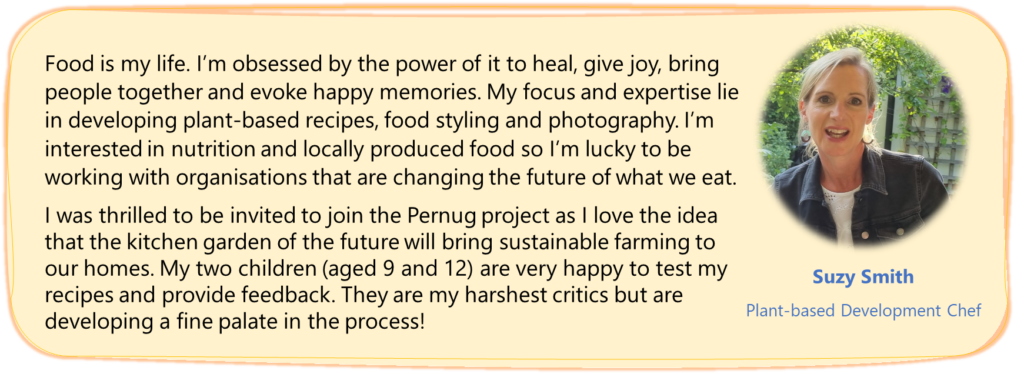
Plant-Based Eating – FOOD WASTE
With the cost-of-living crisis and the effects of climate change becoming increasingly evident, never has it been more important to act on preventing food wastage.
While there are many provisions in place to reduce food waste, the UK produces the highest amount of food waste in Europe.
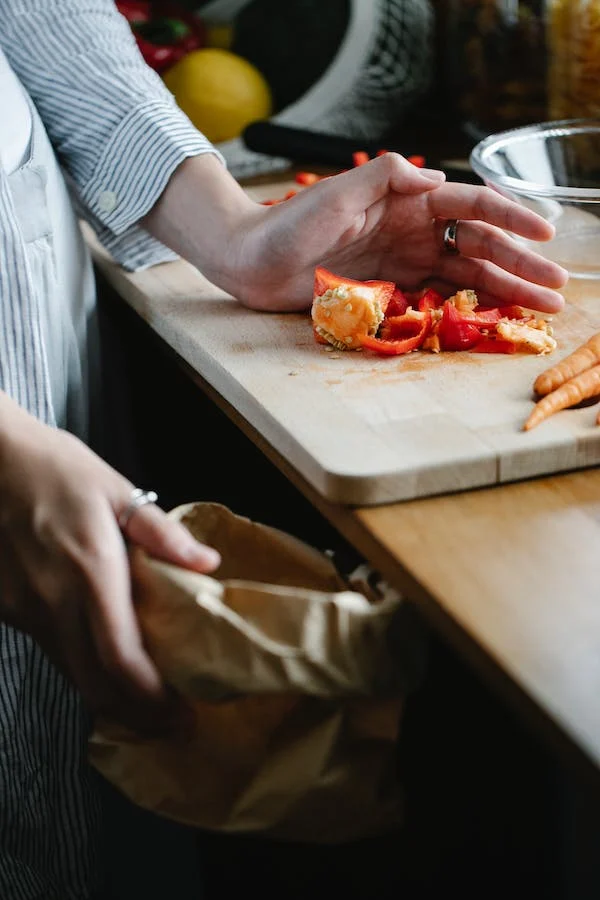
How much food is wasted in the UK?
- The UK throws away around 9.5 million tonnes of food waste in a single year – even though 8.4 million people in the UK are in food poverty.
- 70% of UK food waste was intended for human consumption, 30% is inedible parts.
- The average UK family spends £470 per year on food that’s binned and not eaten.
What about global food waste?
Over one third of all food produced globally goes to waste. Food waste releases a great deal of methane gas as it breaks down. According to a report by the EPA, methane is 25 times more harmful than carbon dioxide because it can trap heat within the atmosphere.
What can I do to prevent food wastage?
With such shocking statistics, we should all be doing our bit to reduce food waste but where do you start? Here’s some simple tips to consider.
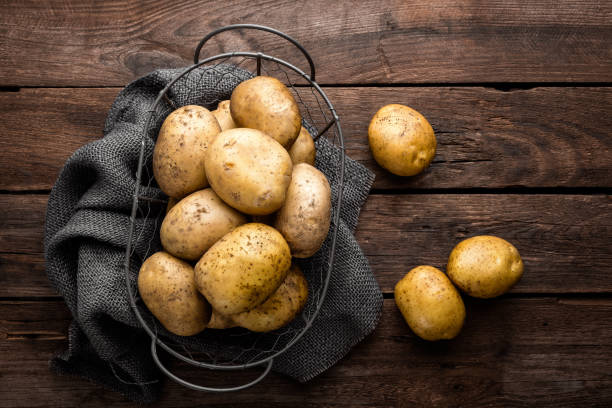
Potatoes are the number one most wasted food in the UK with 4.4 million potatoes wasted every day in British households. So how can you help reduce this number?
- Green and sprouting spuds – chop off the sprouts and any green bits and the rest is good to eat.
- Store correctly – store spuds in a cool, dark, and dry cupboard; out of light and out of your fridge. You can buy special potato bags for this purpose.
- Parboil and freeze – for a guaranteed crispy roast potato, prepare any extra potatoes, parboil, and freeze in portions. Roast directly from frozen.
Leafy greens are high in fibre, micronutrients, and minerals. However, cooking them will lose heat-sensitive nutrients like vitamin C, and some nutrients will leach into the liquid. Therefore, it’s not recommended to poach vegetables then remove the water. Using leafy greens in soups or pesto is better for retaining nutrients.
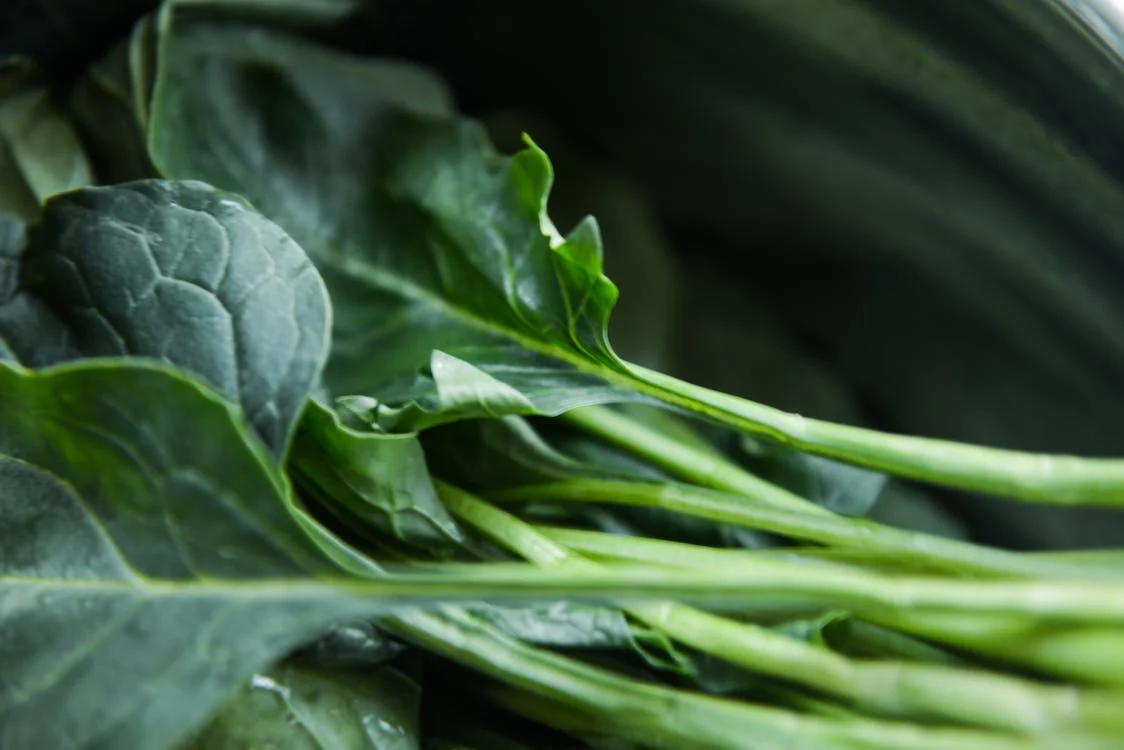
- For a quick pesto, use up any leftover salad greens; blitz the leaves with oil, herbs, garlic, nuts, and a cheese alternative. Toss the pesto with pasta or rice for a quick and healthy meal. Leafy greens can also be sauteed with garlic (Italian-style) and served as a side. Squeeze over some lemon juice; this not only makes it taste delicious, but vitamin C increases the absorption of iron.
- A quick and easy pea and lettuce soup is a great way to use up wilting salad leaves. Start with a base of chopped leeks or onions, garlic, and potato. Sautee in oil for a few minutes on a low heat. Add vegetable stock, cook for about 20 minutes or until tender, add leaves and frozen peas then cook for another 5 mins before blitzing. Add a swirl of vegan cream and lots of black pepper.
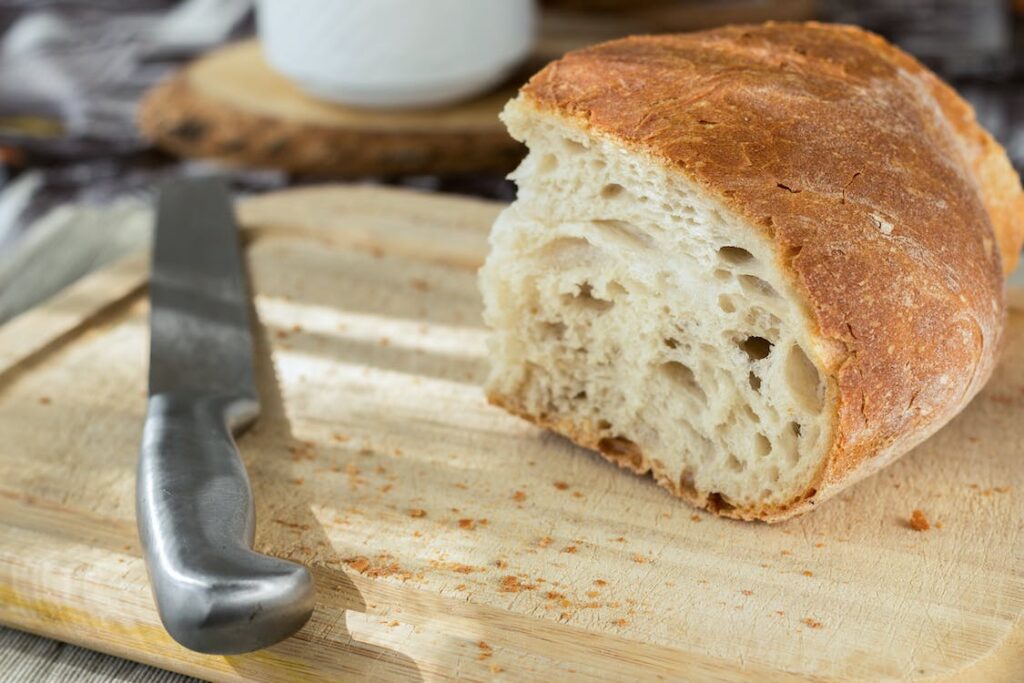
Keeping bread in the freezer is far better than putting it in the fridge, where it will go stale very quickly. Defrost what you need or simply pop it straight in the toaster if you’re making toast. In fact, bread which has been frozen, defrosted and toasted has higher levels of resistant starch which helps to reduce the rise in blood sugar after a meal and improve insulin sensitivity.
- Ends of bread – save them all up and turn them into breadcrumbs for coating or binding homemade veggie burgers or topping mac ‘n’ cheese/pasta bakes. Alternatively, turn the leftover ends into croutons for tossing into salads or serving on top of soups. Defrost the bread, cut into bite sized chunks, place in a bowl, drizzle over oil then bake in a preheated oven on 180°C/Gas 4 for about 10 mins.
Overripe bananas are the perfect excuse to make banana bread but if you’re lacking time, a quicker solution is to peel and chop up brown bananas and put them in the freezer. Frozen bananas are great for making smoothies, milkshakes, and banana ice cream.
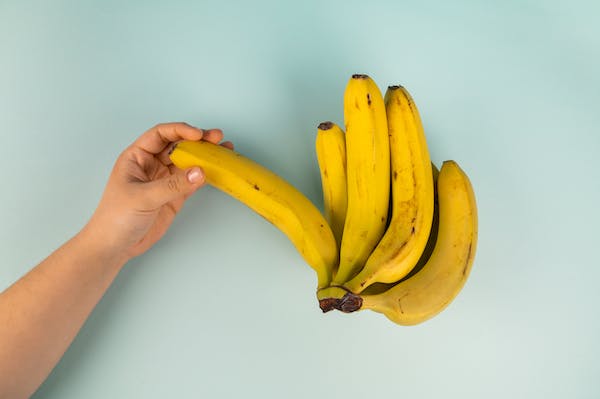
*PERNUG (PERsonalised NUtrItion through kitchen Gardens), aims to address nutritional deficiencies by increasing access to high nutritional quality plant foods. For more information: PERsonalised NUtrItion through kitchen Gardens (PERNUG) – EIT Food

This research was supported by the European Institute of Innovation and Technology (EIT) Food, co-funded by the European Union under the Horizon 2020 and Horizon Europe, the EU Framework Programmes for Research and Innovation.

